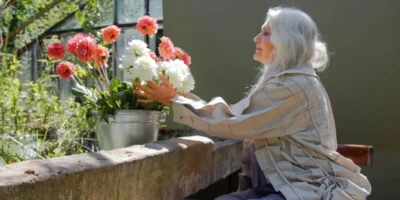As your parents age, you may be considering having them move into a granny flat on your property. This can be a great way to keep them close and provide them with support, while still allowing them to maintain some independence.
However, this situation isn’t always straightforward and can be vulnerable to disagreements or risks if the proper care isn’t taken.
What is a granny flat agreement?
To ensure all parties’ rights and responsibilities are understood and protected, it’s important to draft a granny flat agreement. This is a legally-binding document that outlines the terms when an elderly parent is provided with accommodation in the home of an adult child.
The accommodation is usually provided by the child in exchange for some payment, and sometimes the parent will sell their home to pay for a granny flat to be built at the child’s home. While there is no need to physically “build” a separate granny flat or a separate residence, there must be a designated room or area that allows for the parent’s exclusive accommodation for life.
Centrelink’s rules allow for any property transferred or money paid to the parent’s child to be exempt of the deprivation/gifting rules. In most cases, care is required for the parent or older person, and is in fact the impetus for considering a granny flat agreement in the first place.
What is ‘granny flat interest’?
Whatever the family arrangements are for security in old age, the agreement needs to establish a ‘granny flat interest’. There needs to be a transfer of assets/money to the owner of the property in which the parent will live in exchange for a tenancy or ‘life interest’ in their property.
Assets that can be transferred in exchange for a ‘granny flat interest’ include transferring the title of the parent’s home, plus other forms such as cash, stocks, bonds or jewellery and heirlooms.
Centrelink will look at the value of the asset transferred to see if the parent paid a ‘reasonable amount’. If they consider that the parent has transferred more than the value of the granny flat, they will determine that the parent has been deprived of an asset. This will directly affect the amount of pension received.
The parent being provided with accommodation and/or care cannot own the property. The home in which the accommodation is provided must be the parent’s principal home.
Parties entering into a granny flat agreement need to be aware that money or assets given to the child in exchange for the ‘granny flat interest’ no longer forms part of the parent’s estate. This means that upon the death of the parent, any property or money handed over to the child will not be distributed in accordance with their will.
Generally, once established, granny flat interests or rights cannot be revoked simply because a child wishes to sell the property. They may:
- sell the property with the parent’s arrangement as a condition of sale;
- transfer the parent’s life tenancy or interest to another property, or
- compensate the parent financially for losing their ‘granny flat interest’.
What should a granny flat agreement cover?
While a granny flat agreement can be a great way to provide elderly parents with a stable home and family support in their retirement, the terms of the arrangement must be very clear.
The agreement should consider:
- Who does what for whom (eg cooking, cleaning, washing etc)?
- What kind of personal care and support will the family provide the parents with, if any?
- Who pays for what (electricity, phone etc)?
- Will the parent be liable for any upkeep of the property?
- How much privacy will the parent have within the home?
- How much independence will the parent have?
- Will the parent be involved in childcare for grandchildren?
- What happens if the parent’s health worsens and they need to be moved out to a medical facility for a prolonged period?
- If assets are involved, under what circumstances would the parent allow them to be sold?
- What if the child passes away?
- How will the parent be compensated if the Granny Flat Agreement does not work out?
What are the benefits of having a granny flat agreement?
A granny flat agreement is important because it can help to prevent misunderstandings and disputes down the road. It can also help to ensure that your parents’ and your rights are protected.
Some of the most important benefits include:
- It can help to prevent misunderstandings and disputes.
- It can help to ensure that your parents’ and your rights are protected.
- It can help to ensure that your parents have a place to live for the rest of their lives.
- It can help to give you peace of mind knowing that your parents are being cared for.
What can go wrong?
Problems can arise if parties do not take a long term view. A parent may enter into a granny flat arrangement when they are relatively healthy, but their health may deteriorate drastically and can place a heavy toll on emotions, finances and lifestyle adjustments. If they need money to go into an aged care facility, this can create problems.
Siblings can feel that one child is receiving a financial advantage given that a granny flat agreement will affect the parent’s estate. Any money or assets given to the child in exchange for the ‘granny flat interest’ will no longer be distributed in accordance with their will. This can affect what other beneficiaries, such as siblings, will receive.
If the family falls out and the parent wants their money to be paid back this can create problems.
How to prevent things going wrong
A good granny flat agreement will include provisions for what will happen if things don’t go to plan such as if the relationship sours or if the parent’s health deteriorates.
Consultation early on can also prevent issues from arising down the track. Every family member in the household (such as the child’s spouse) should be consulted about the arrangement. Siblings not living in the same household should also be consulted because it’s important they feel comfortable that one child isn’t receiving an advantage over others and that the parent is protected.
Generally all affected family members should “sign off” on the granny flat contract. Not because they are direct parties to the agreement but because it is vital they acknowledge witnessing and understanding the arrangement – which should be as transparent as possible to avoid disputes later on.
Key takeaways
Having your parents move into a granny flat can be a great way to keep them close and provide them with support. However, it is important to be aware of the legal and financial implications before making this decision. By getting legal advice and drafting a granny flat agreement, you can help to ensure that your parents’ rights are protected and that your family is prepared for the future.
About Kristy Hatcher
Kristy Hatcher is an accomplished Estate Planning Solicitor with Owen Hodge Lawyers. With an impressive reputation that stems from her extensive experience, Kristy’s credentials include a Master of Laws specialising in Wills and Estates. Kristy uses her experience and specialty to achieve outstanding results for her clients.
Photo by RDNE Stock project




